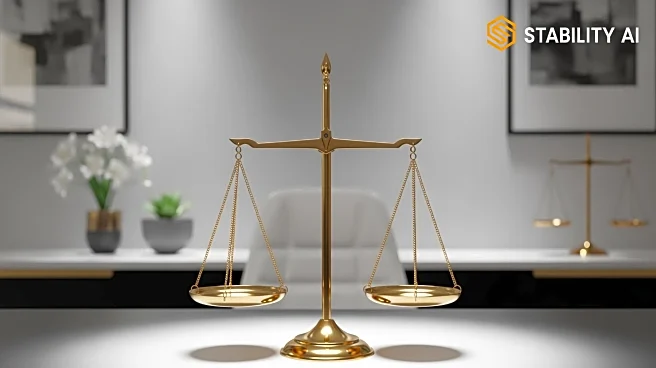What's Happening?
Stability AI has largely prevailed in a legal battle against Getty Images in the United Kingdom, concerning allegations of intellectual property infringement. The case, which was closely watched, involved
claims by Getty that Stability AI's image-generating software, Stable Diffusion, infringed on its copyright and trademark. While Getty succeeded partially in its trademark claims, the court dismissed the primary copyright infringement allegations. The ruling, delivered by Justice Joanna Smith, noted that the trademark claims were 'historic and extremely limited in scope.' Stability AI argued that the training of its AI model occurred outside the UK, on servers operated by Amazon, and that only a small fraction of its outputs resembled Getty's works. The case is part of a broader trend of legal challenges faced by tech companies from creative industries over the use of copyrighted materials in AI training.
Why It's Important?
This ruling is significant as it highlights the ongoing tension between technology companies and content creators over the use of copyrighted materials in AI development. The decision could set a precedent for how intellectual property laws are applied to AI technologies, potentially impacting the operations of tech companies and the rights of content creators. Stability AI's victory may encourage other tech firms to continue using large datasets for AI training under the 'fair use' doctrine, while content creators may need to explore new strategies to protect their intellectual property. The outcome of this case could influence similar lawsuits in the United States and other jurisdictions, affecting stakeholders across the tech and creative industries.
What's Next?
Getty Images is pursuing a similar copyright infringement lawsuit against Stability AI in the United States, which could further clarify the legal landscape for AI and intellectual property. The outcome of this case may influence future legal strategies and the development of AI technologies. Additionally, other tech companies facing similar lawsuits may adjust their practices based on the precedents set by these cases. The ongoing legal battles underscore the need for clearer regulations and guidelines regarding the use of copyrighted materials in AI training.
Beyond the Headlines
The case raises important questions about the balance between innovation and intellectual property rights. As AI technologies continue to evolve, there is a growing need for legal frameworks that address the unique challenges posed by AI. This includes considerations of how AI models are trained and the extent to which they can use existing copyrighted materials. The outcome of these legal battles could lead to new industry standards and influence future policy decisions regarding AI and intellectual property.









